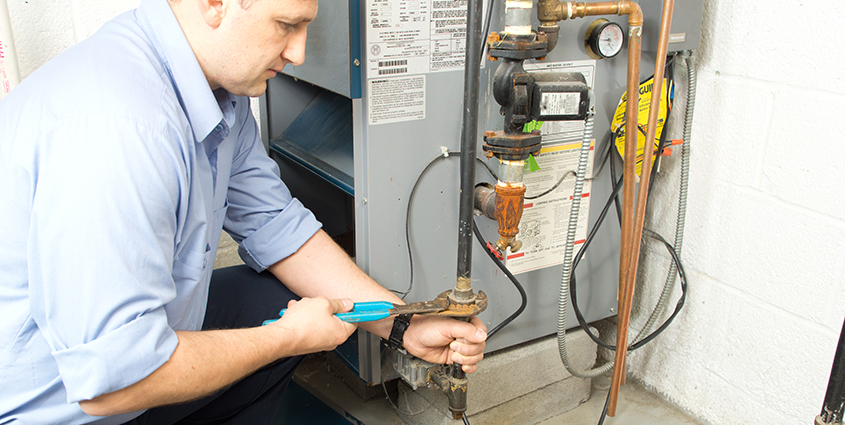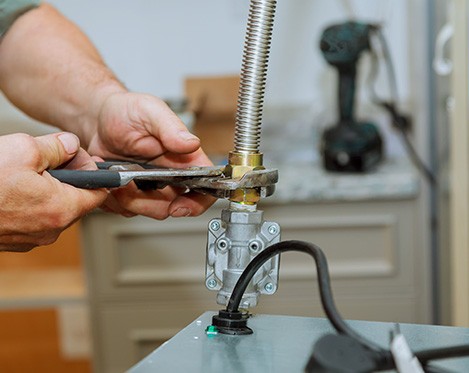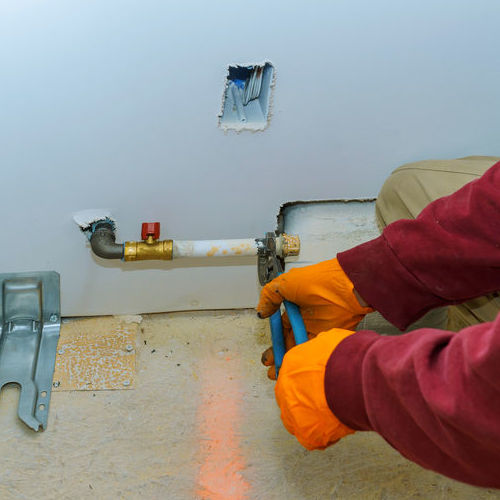Gas lines in your home are an important aspect to consider, especially during appliance installations or renovations. Ensuring their safety and functionality is crucial in order to avoid any potential hazards or accidents. By taking certain precautionary measures and following some simple guidelines, you can ensure that your gas lines are secure and in good working condition. In this article, we will explore various ways to guarantee the safety and functionality of your gas lines, providing you with peace of mind as you undertake any projects in your home.

Gas Lines in My Home
Gas lines play a critical role in providing the necessary fuel for various appliances in your home, such as stoves, water heaters, and dryers. Ensuring the safety and functionality of these gas lines is of utmost importance to protect your household from potential hazards. In this article, we will explore the basics of gas lines, how to identify the types of gas lines in your home, and what steps to take to maintain their safety and functionality.
Understanding the Basics of Gas Lines
Gas lines are essential conduits that deliver natural gas or propane from a source to the various appliances in your home. They consist of pipes, fittings, and connectors that create a network allowing gas to flow efficiently. Understanding the basics of gas lines is crucial for identifying potential issues and ensuring their proper functioning.
Identifying the Types of Gas Lines in Your Home
Before diving into gas line maintenance, it is important to understand the different types of gas lines that may exist in your home. The two most common types are natural gas lines and propane lines. Natural gas lines are usually connected to the utility company’s supply, while propane lines are connected to a propane tank. Identifying the types of gas lines in your home will help you choose the appropriate maintenance and safety measures.
Checking the Age and Condition of Gas Lines
Gas lines are not immune to wear and tear, and it is essential to check their age and condition regularly. Aging gas lines can become brittle and develop leaks, posing a significant safety risk. Carefully inspect the gas lines in your home, looking for signs of corrosion, bends, dents, or loose fittings. If you notice any issues or suspect that your gas lines are old, it is advisable to seek professional assistance to address the problem promptly.
Checking for Gas Leaks in Existing Lines
Gas leaks are a serious concern that requires immediate attention. They can occur due to loose connections, aging pipes, or accidental damage caused during renovations. To check for gas leaks in existing lines, follow these steps:
- Turn off all gas appliances and pilot lights.
- Mix a solution of 50% water and 50% dish soap.
- Apply the solution to all gas connections, including joints, valves, and fittings.
- Observe for any bubbles forming, indicating a gas leak.
- If you detect a gas leak, turn off the gas supply, open windows for ventilation, and contact a professional to fix the issue.

Ensuring Safety During Appliance Installations
Installing gas appliances requires extra precautions to ensure the safety of your household. Mishandling gas appliances during installation can result in gas leaks or other potential hazards. To mitigate these risks, it is crucial to properly install gas appliances, hire professionals for installation, use approved connection materials, and conduct leak testing after installation.
Properly Installing Gas Appliances
When installing gas appliances, it is essential to follow the manufacturer’s instructions carefully. Ensure that you have adequate ventilation for the appliance and that all connectors, fittings, and seals are properly tightened. Improper installation can lead to gas leaks or inefficient operation of the appliance.
Hiring a Professional for Installation
If you are unsure about how to install gas appliances, it is highly recommended to hire a professional for the job. Professionals have the necessary skills, experience, and knowledge to handle gas lines safely and efficiently. They will ensure that everything is properly connected and in compliance with local regulations, giving you peace of mind knowing that your appliances are installed correctly.
Using Approved Connection Materials
Using approved connection materials is crucial to maintain the safety of your gas lines. These materials are specifically designed to withstand the high pressures and potential gas leaks. Always refer to the manufacturer’s instructions for the recommended materials and avoid using makeshift connectors or fittings that may compromise the integrity of the system.
Conducting Leak Testing after Installation
After installing gas appliances, it is vital to conduct a thorough leak test to ensure there are no gas leaks. Follow the steps mentioned earlier under “Checking for Gas Leaks in Existing Lines” to perform a leak test. This precautionary measure will increase your confidence in the safety of your newly installed gas appliances.

Ensuring Safety During Renovations
Renovations often involve changes to the layout and configuration of your home, which may require relocating existing gas lines or installing new ones. It is crucial to ensure the safety of gas lines during renovations by assessing their compatibility with your renovation plans, consulting with professionals for gas line relocation, updating gas lines, and obtaining necessary permits and inspections.
Assessing Gas Line Compatibility with Renovation Plans
Before starting any renovations, assess your gas line’s compatibility with your renovation plans. Determine if the gas lines need to be relocated or if any modifications are necessary. It is important to keep in mind that moving gas lines should be done cautiously and by professionals to mitigate risks.
Consulting with a Professional for Gas Line Relocation
If you need to relocate gas lines during renovations, it is highly recommended to consult with a professional. Gas line relocation can be complex, requiring expertise and knowledge of local building codes and regulations. Professionals will ensure the safe and compliant relocation of gas lines, minimizing the risk of potential hazards.
Updating Gas Lines when Renovating
During renovations, it is an opportune time to assess the condition of your existing gas lines and consider updating them if needed. Aging or damaged gas lines should be replaced promptly, as they pose a higher risk of gas leaks or other safety concerns. Consult with a professional to evaluate the condition of your gas lines and determine if replacement is necessary.
Obtaining Permits and Inspections for Gas Line Work
When undertaking any gas line work during renovations, it is essential to obtain the necessary permits and inspections. Local authorities require permits for gas line installations, relocations, or replacements to ensure compliance with safety standards. Inspections are conducted to verify that the work has been done correctly and to identify any potential issues that require attention.

Maintaining Functionality of Gas Lines
To ensure the ongoing functionality of gas lines and prevent any potential safety hazards, regular inspections, clearing debris and obstructions, replacing aging or damaged gas lines, and ensuring proper ventilation for gas appliances are essential.
Regular Inspection and Maintenance
Regular inspections are crucial to identify and address any potential issues with your gas lines proactively. Schedule annual inspections by a qualified professional who will assess the condition of the pipes, fittings, and connectors, ensuring they are in good working order. Regular maintenance goes hand in hand with inspections, as it allows for the early detection and resolution of any concerns before they become major problems.
Clearing Debris and Obstructions
Over time, debris, dust, or other materials may accumulate around your gas lines, potentially obstructing their proper functioning. Regularly clear any debris or obstructions in the vicinity of your gas lines to maintain their optimal performance. Be cautious when clearing debris to avoid damaging the gas lines or fittings.
Replacing Aging or Damaged Gas Lines
Aging or damaged gas lines can pose significant safety risks. If you notice any signs of corrosion, leaks, or other damage to your gas lines, it is crucial to replace them promptly. An experienced professional will be able to assess the condition of your gas lines and advise you on the appropriate steps to take.
Ensuring Proper Ventilation for Gas Appliances
Proper ventilation is essential for gas appliances to function safely and efficiently. Inadequate ventilation can lead to a buildup of carbon monoxide, a colorless and odorless gas that is harmful to humans. Ensure that your gas appliances have sufficient ventilation, such as vents or exhaust fans, to remove any potentially harmful gases.
By following these guidelines and staying proactive in maintaining the safety and functionality of your gas lines, you can enjoy the benefits of gas-powered appliances without compromising the well-being of your household. Remember to consult with professionals when needed and always prioritize safety when working with gas lines.

